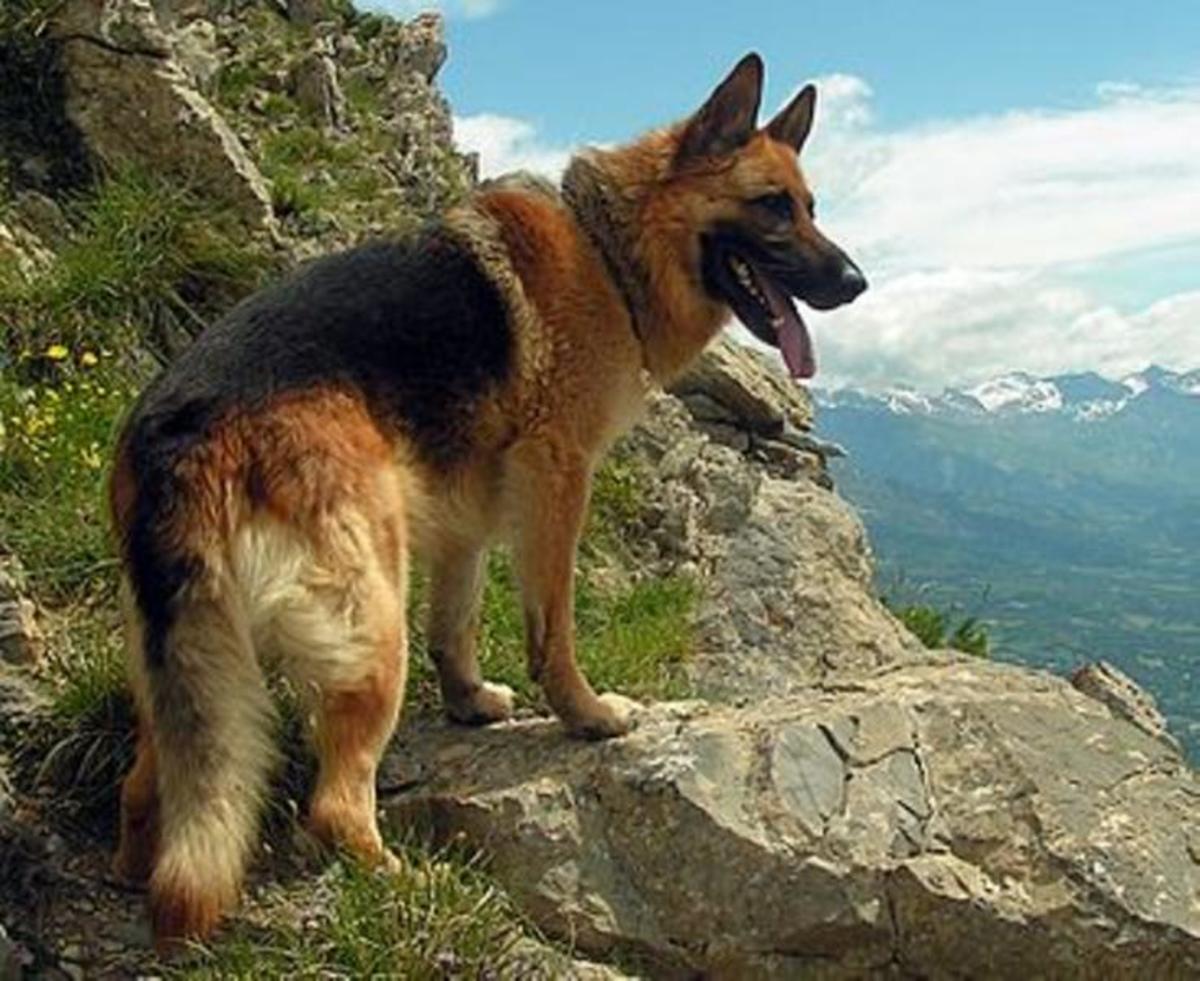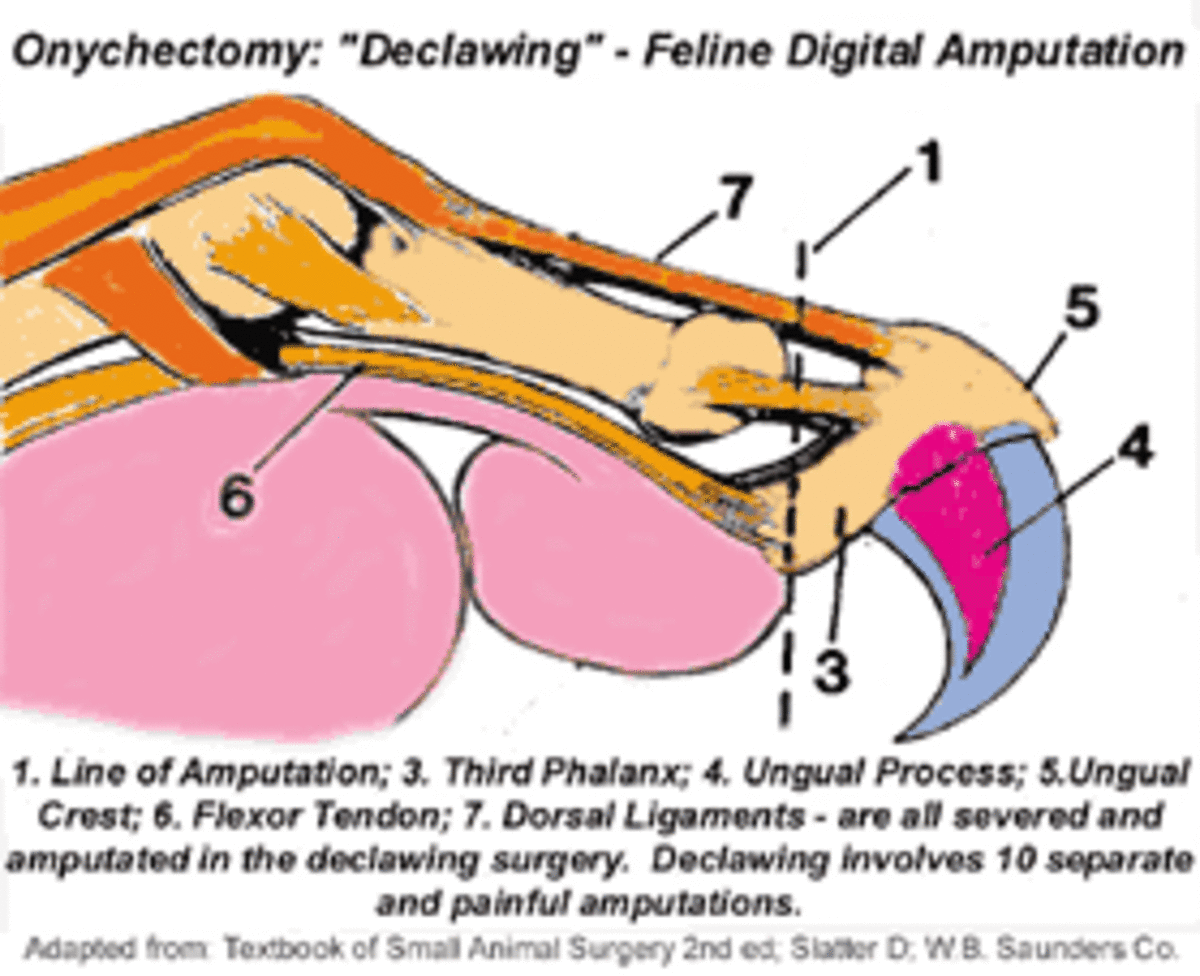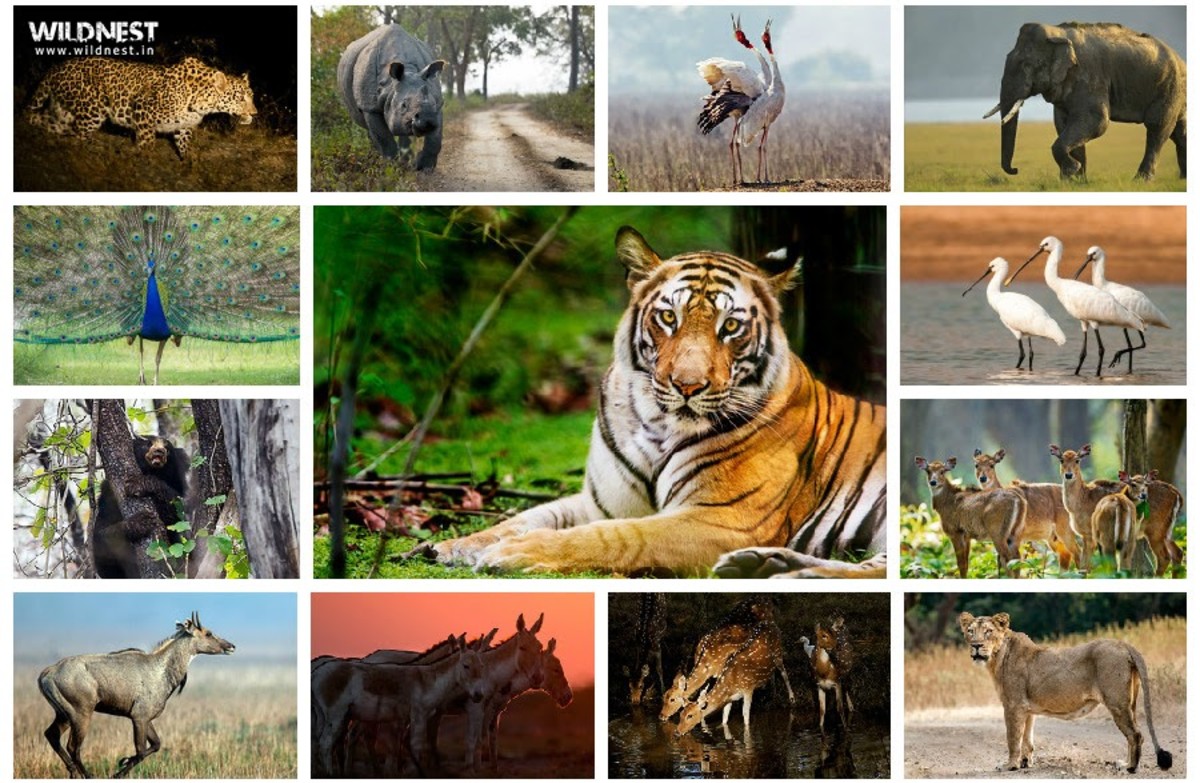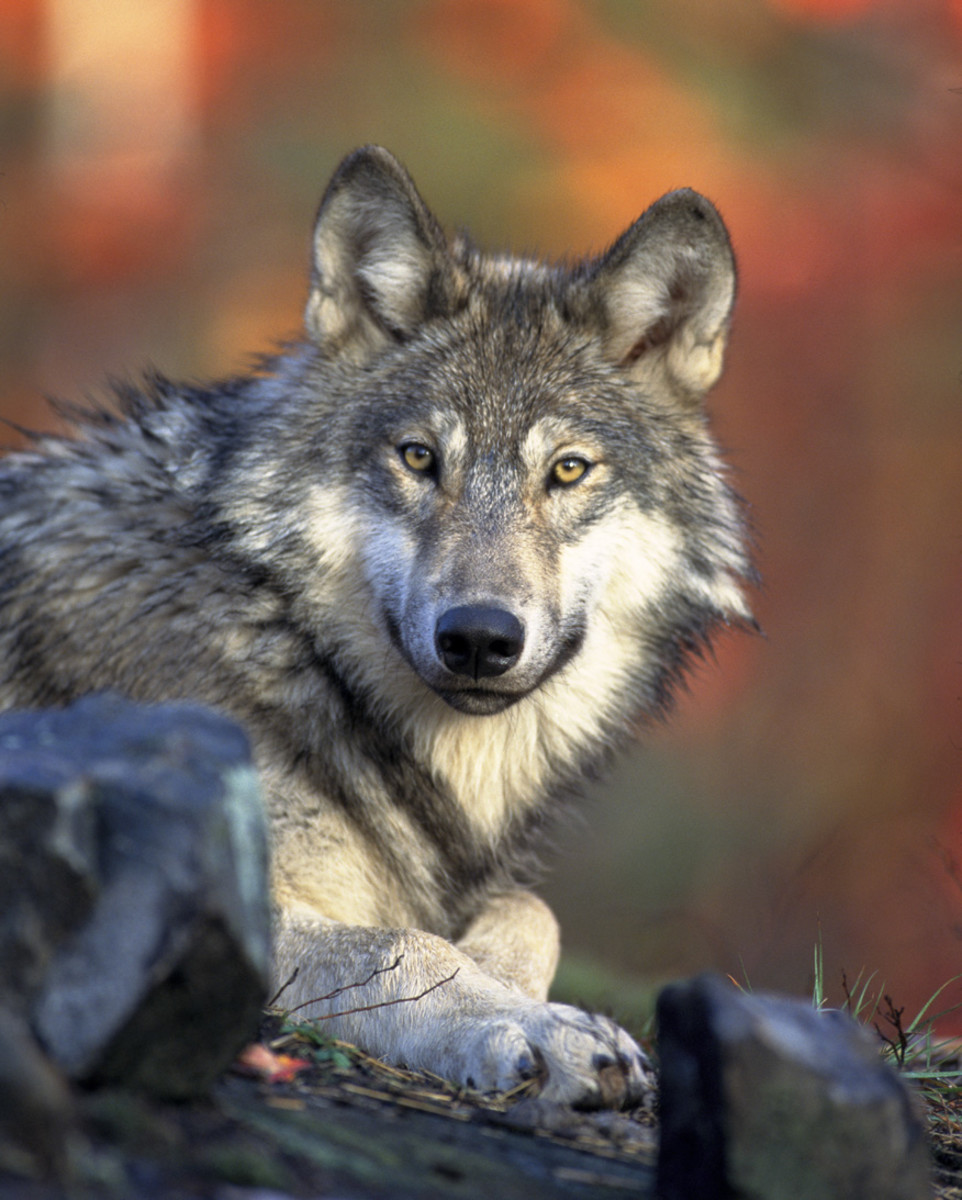- HubPages»
- Education and Science»
- Life Sciences»
- Endangered Species
Rhino Poaching Crisis
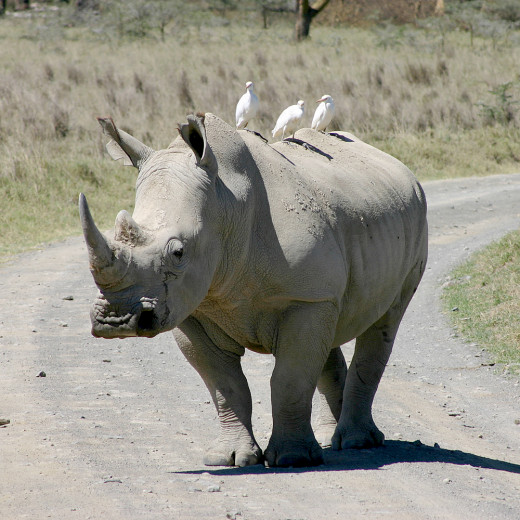
Safari animal no longer
Despite many years of successful conservation efforts to secure the future of the rhino, the animal is now under serious threat of extinction in the wild due to a huge increase in poaching incidents. The rhino is one of the 'Big 5' of animals to see on safari, but, if the current rate of killings is not curbed, it could well be that safari tourists will no longer be able to see this magnificent animal in the wild.
Why the rhino?
The main reason the rhino is sought by poachers is its horn. Powdered rhino horn has been used in traditional Asian medicine for thousands of years, for the 'treatment' of ailments such as fever. More recently, people have come to believe that cancer can also be cured, possibly through rumours circulated on the internet that a Vietnamese government official claimed that he had been successfully treated with horn. Of course, there is no scientific evidence that the rhino horn, composed of the same stuff as human fingernails, has any curative powers whatsoever.
Why people should cling to such outmoded beliefs in the 21st century is not the remit of this hub. What is apparent is that these beliefs, combined with new wealth in the emerging East Asian markets such as China and Vietnam, has resulted in a huge spike in killings over the past 5 years.
To add to the rhino's woes, in Vietnam the horns are prized by the rich to display in their homes. There is also a lucrative market in Yemen and Oman for daggers with rhino-horn handles‚ given to boys during rites of passage.
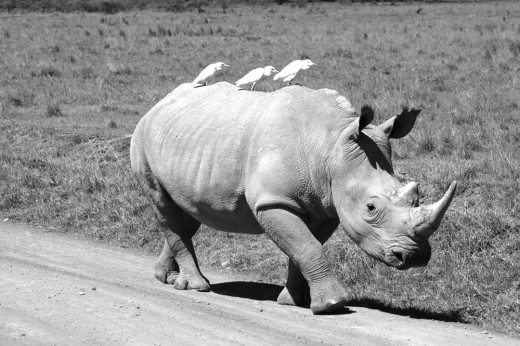
An unprecedented crime wave
The trading of rhino horns is illegal under UN laws. On the black market, they are currently estimated to sell for around $55,000 per kilo, putting them on a par with gold, diamonds and cocaine. No surprise then that poaching is now being carried out by highly organised criminal gangs with sophisticated techniques. Armed with tranquillizer guns or AK47 rifles and night vision, the gangs often fly in by helicopter, hack off the horn with a chainsaw, and then make a quick getaway. Game reserve wardens then find the grizzly aftermath of these raids the next day. There are some truly horrific pictures of mutilated and semi-decapitated rhinos being circulated on networking sites by conservationists desperately trying to raise awareness of the animals' plight.
A few rhinos are lucky enough to survive these attacks, though grossly disfigured and lacking their usual means of defence. Most are not, resulting in a massive surge from an average of 10-15 poached animals per year a few years ago to numbers now counted in their hundreds. The Endangered Wildlife Trust has reported that as of 20 March this year, 182 rhinos had been poached. Pregnant females and mothers are not spared, nor are young rhinos even though their horns are small.
The increased trade links between the East Asian countries and Africa has shortened the supply chain in rhino horns. In 2008 a Vietnamese diplomat was caught on camera taking delivery of contraband rhino horn outside the Vietnamese embassy in Pretoria.
South Africa has borne the brunt of the slaughter because it has between 70% and 80% of the global population - about 20,000 animals. However, all countries where rhinos live are under threat.
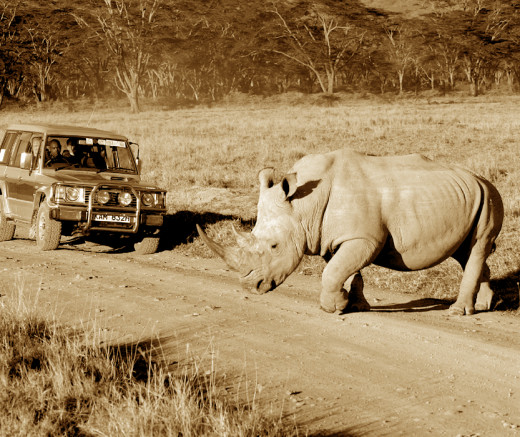
Europe is also hit!
Criminal activities are not limited to the wild. Across Europe there has been a series of raids on collections of horn in museums and auction houses. Criminal gangs have looted more than 30 collections of rhino horn, including a Czech castle, natural history museums in Belgium, Germany, France and Italy, and other sites in Portugal and Sweden.
In Britain, horns have been stolen from the Haslemere Educational Museum in Surrey and the Ipswich Museum. Last year horns at the Natural History Museum in Tring, Hertfordshire, were also targeted. A thief was successful in breaking-in and stealing two items on display. However, museum staff, well aware of the crimewave, had replaced the original horns with replicas and the booty was worthless.
At Norfolk Castle Museum in February four men simply walked in during opening times and forced open a display case containing a rhino head. Luckily, they were spotted by staff who tackled them and managed to retrieve the stolen item.
In 2010 a UK man was jailed for 12 months after attempting to smuggle a rhino horn through customs at Manchester airport, en route for a flight to China. The horn originated from a deceased animal at Colchester Zoo in Essex.
Animals housed in zoos are also on the gangs' radar. This is a worrying development. Zoos are an insurance against total annihilation of species. It is essential that they have adequate security measures in place. Some are already undertaking 24-hour surveillance of their rhinos and have installed CCTV.
What to do?
So is all lost for the rhinoceros? Well, game reserves, authorities and conservation groups are certainly fighting back. There are a number of campaign groups supporting measures to curb poaching and these are shown at the foot of this page. Experts have called for greater cooperation between conservationists and enforcement agencies, and also better coordination between wildlife agencies and land holders. A number of initiatives are being carried out, including the training of sniffer dogs, coordination of anti-poaching training, improving training, increasing patrols, and fostering of orphaned rhino babies. These initiatives are backed up by an agreement reached at a meeting of the Convention of International Trade in Endangered Species of Wild Fauna and Flora (CITES) two years ago.
In some cases rhinos have been de-horned to render them valueless to poachers. However, serious questions have been raised about the effectiveness of this practice because such animals have been killed in any case, possibly out of frustration, or so that the poachers don’t waste their time pursuing the same animal again. The length of the horn is also an important dominance signal among rhinos, so the horn’s absence may lead to social stress.
In the field there are many dedicated and passionate wardens, wildlife experts and safari operators all working and campaigning to conserve the species. In South Africa experts from the International Rhino Foundation are training rangers and providing equipment. The South African government has deployed hundreds of troops along its borders to help fight gangs smuggling rhino horns. In Kruger National Park around 20 armed rangers are on patrol day and night.
The UK has taken a lead in securing an international agreement to curb the sale of rhino horn and is to lead talks on how to combat the myths about its curative properties.
The South African government has commissioned a study into whether legalising the trade in rhino horn could help reduce poaching, but this unsurprisingly has met with criticism from the World Wildlife Fund who say this would be counter-productive. Indeed, encouraging the erroneous beliefs that fuel demand by legitimising supply would surely be a retrograde step.
A group call Section 24 Rights Coalition has called on the SA government to cease the sale of state-owned rhino horn and stop the issue of trophy hunting permits until a proper evaluation of the scale of the problem, including investigations into possible corruption, has been made. In April the government announced tighter rules on rhino trophy hunts, and that microchips and DNA profiling would be deployed to counter bogus hunts. It is the opinion of the author that trophy hunting is repugnant and should be banned completely but that is the subject of another article.
In February in the USA a number of people were arrested in connection with rhino horn smuggling activities. This followed an 18-month multi-state operation by the authorities. $1 million in cash, diamonds and Rolex watches bought with funds from the sale of smuggled horns were seized, along with 20 rhino horns. The Director of the US Fish and Wildlife Service told the Los Angeles Times that the arrests had dealt a serious blow to rhino horn smuggling both in the US and globally.
Recently the State Forestry Commission in China, which outlawed the sale of rhino horn in 1993, has announced a massive crackdown on websites and antique markets that openly traded in animal products from endangered species. The commission says that police uncovered more than 700 cases of illegal wildlife trade, busted 13 gangs, punished 1,031 illegal traders, seized over 130,000 wild animals and 2,000 animal products worth nearly seven million yuan ($1.11 million).
A very welcome initiative took place in April when experts, officials and stakeholders from across Africa met in Nairobi at a summit held by the African Wildlife Foundation and the Kenyan Wildlife Service to address the crisis. The result was a four-point plan of action, with specific responsibilities allocated to the various participants, to be carried-out over the course of 2012.
Nevertheless the future remains uncertain . One expert reckons that if the current rate of killings is not curbed then the rhino will be under serious threat of extinction within three years and one of the safari big 5 no longer. That would surely be a tragedy.
Please demonstrate your support for rhino conservation initiatives wherever possible.
- Speak for me. Please. My horn is not medicine. | causes.com
Please stop them from shaving/cutting/harvesting my horn. - TRAFFIC - Wildlife Trade News - Rhino poaching deaths continue to increase in South Africa
TRAFFIC, the wildlife trade monitoring network, works to ensure that trade in wild plants and animals is not a threat to the conservation of nature. - Rhino Conservation - Save the Rhino
- The International Rhino Foundation - Dedicated to the Survival of the World's Rhino Species Throug
- WWF - Update - Saving the Rhinos
Relocation efforts help the species as it faces an increasing threat from poachers in South Africa - BBC News - South African rangers take up arms to protect rhinos from poachers
- AWF: African Conservation Community Announces Comprehensive Response to Rhino Poaching Crisis
- Section 24 Rights Coalition

